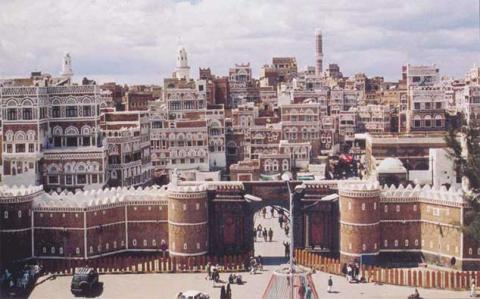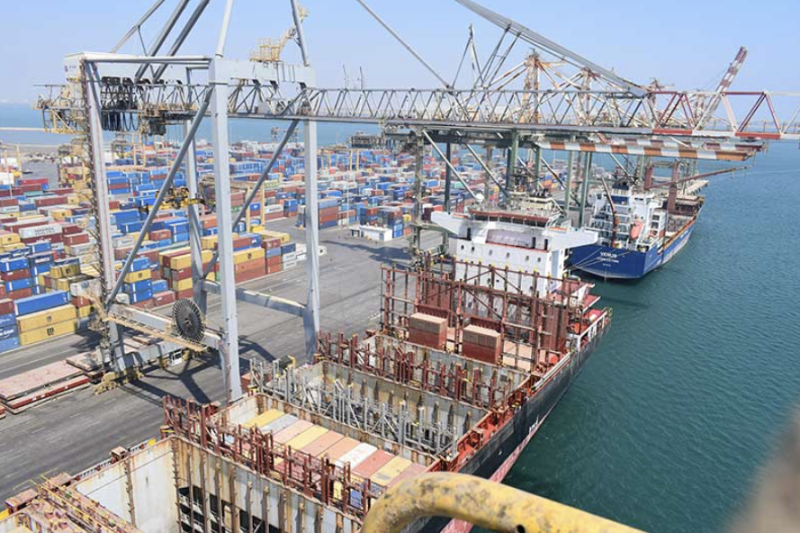Yemen’s widening sectarian conflict


The political chaos in Yemen should focus the world’s attention on the perils of counterterrorism-lite as is being practised by the US in many countries, says the international media. The Yemen crisis, if not resolved, could lead to serious consequences in the Middle East.
The New York Times urges the United States and Yemen’s neighbouring countries to move towards a compromise that avoids the wholesale collapse of the state. “The implications of a complete unravelling of [Yemen’s] government institutions would be catastrophic,” its editorial says. “[President] Hadi’s resignation followed weeks of tense negotiations with the Al Houthis, who have their strongholds in northern Yemen and receive significant support from Iran. A widening sectarian conflict in Yemen could more forcefully draw Saudi Arabia, and Iran into an unpredictable power struggle in which neither side would hold the upper hand. If the Al Houthis attempt to govern the majority-Sunni nation, the Al Qaida affiliate would almost certainly gain more support.”
The Washington Post is scathing of US President Obama’s anti-terrorism policies. “In devoting 250 of the 6,800 words of his State of the Union address to the fight against “violent extremism,” President Obama offered a boilerplate description of his policy,” says its editorial. “As he spoke, his strategy was crumbling in a nation he failed to mention: Yemen, home to the branch of Al Qaida that claimed credit for the recent attacks in France and has repeatedly attempted to strike the US homeland.”
Yemen’s politics, says the Post, are beyond byzantine, and “The Yemen mess reveals the weaknesses of Obama’s “partners” strategy, which has been too narrowly focused on drone strikes and training of specialised units, and not enough on providing security for the population, institution-building and support for moderate political forces. Unfortunately, the president’s cursory and formulaic description of his counterterrorism policies, following a year in which terrorist attacks expanded across the world, suggests that he remains uninterested in correcting his mistakes.”
The Wall Street Journal too comes down heavily on Obama’s Middle east policy. “It wasn’t long ago that President Obama touted Yemen as a success in the fight against terrorism,” says the WSJ. “Within weeks of his pronouncement, the Iranian-backed Al Houthi militia occupied the capital city of Sana’a. Now matters are getting worse.
“The collapse of Yemen is another reminder, along with Iraq, that counterterrorism-lite doesn’t work, and that the US has to do more to prop up its allies, if necessary with troops on the ground.
If the mess in Yemen cannot be reversed, the fall of Yemen, says the paper, will take the Mideast closer to a regional war between radical Sunnis and radical Shiites, with US allies caught in the middle.
The Daily Star of Bangladesh writes in its editorial, “The word “coup” is being used quite a bit to describe the events underway in Yemen, although “surrender” might be more accurate. In the latest turn of events, embattled President Abd Rabbo Mansour Hadi resigned [last week], dealing a blow to hopes that he could hammer out an agreement with Al Houthis.
Pakistan’s Dawn newspaper fears Yemen may plunge into anarchy if nothing is done quickly to halt its debacle. “What needs to be realised by all in Yemen as well as the international community is that should the state collapse completely, AQAP [Al Qaida in Arabian Peninsula] will have the field wide open to plan and execute further acts of terror. The militant outfit claimed responsibility for the Paris magazine killings while it is a staunch opponent of Al Houthis, having attacked the militia as well as the Yemeni military. Al Houthis and their political rivals need to find common cause against AQAP and help preserve Yemen’s unity. Regional powers should also put aside geopolitical differences and use their influence to neutralise AQAP. In a region afflicted by wars and militant insurgencies, the terror network should not be given room to expand.”
Gulf News

Aden — Ports under the authority of Yemen’s internationally recognized government have received more than two million metric tons of fu…

Mukalla — Local authorities in Hadramout have announced the inauguration of Yemen’s first solar-powered cement station, a landmark proj…

AbuDhabi -- The United Arab Emirates has pledged $1 billion to bolster Yemen’s electricity sector, marking one of the largest development com…